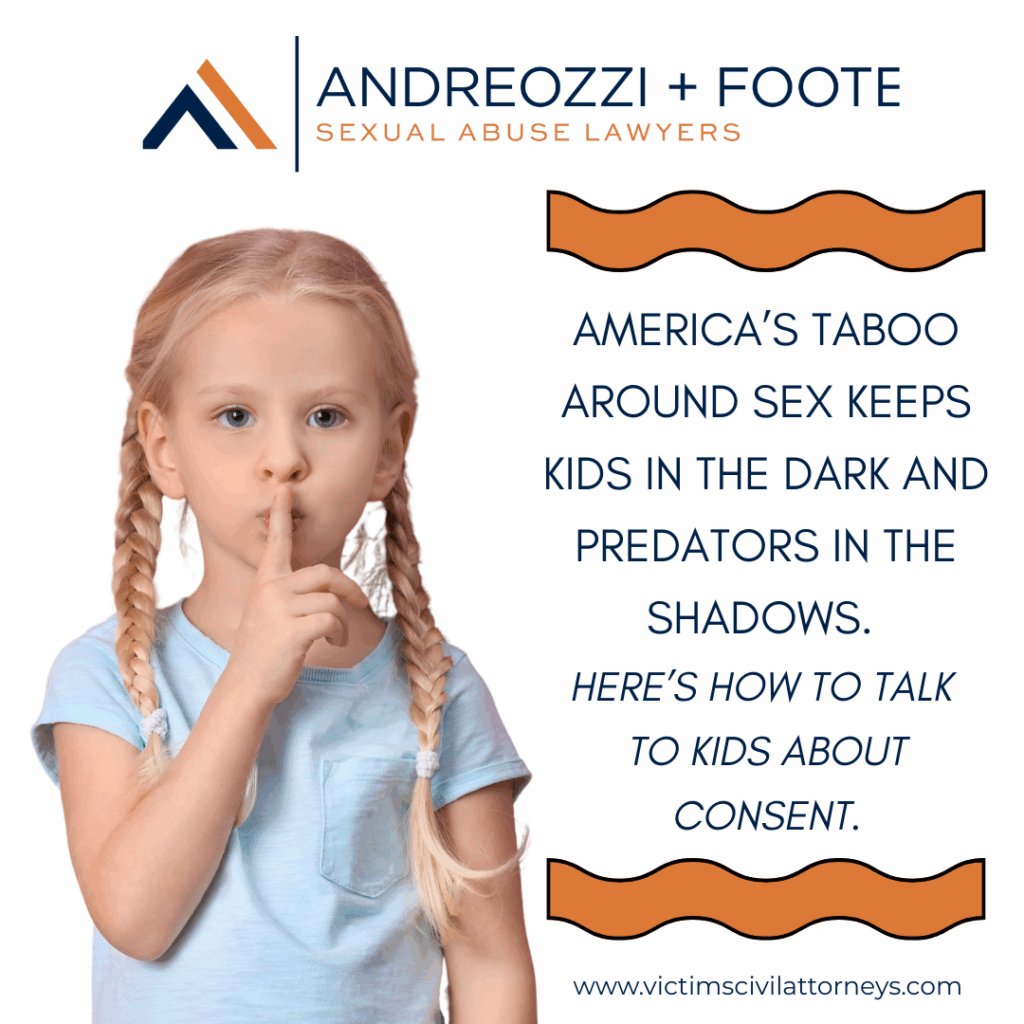How America’s Taboo Around Sex Fuels Sexual Abuse and What We Can Do About It
We’ve treated sex like a secret, and predators count on that
In the U.S., we’ve long framed sex as something shameful or unmentionable. That culture of silence doesn’t keep children safe; it makes them easier to target and less likely to disclose when harm occurs. National data show the scope: more than half of women and about one in three men report sexual violence involving physical contact at some point in life, and about one in four women and one in 26 men experience completed or attempted rape. Sexual violence starts early for many survivors.
Among children, an estimated 1 in 4 girls and 1 in 13 boys in the U.S. experience child sexual abuse, numbers that should end any debate about whether we need to talk with kids early and often.
Why silence has been the norm
Victorian moral codes & the Comstock Act (1873): Federal “anti-vice” laws criminalized mailing “obscene” materials, including information on contraception, cementing the idea that accurate sexual-health information was indecent. That repression still echoes in modern fights over sexual education.
- Hollywood’s Hays Code (1930s–1960s): Mainstream film self-censored depictions of sexuality, interracial relationships, and queer identities, reinforcing stigma in popular culture.
- Abstinence-only era (since 1996): Federal dollars have consistently funded abstinence-only (now “sexual risk avoidance”) programming. Research shows these programs do not reduce teen pregnancy or STIs and can crowd out comprehensive, skills-based education that includes consent.
When accurate information is labeled “indecent,” families are left without tools. Silence doesn’t prevent sex or abuse; it prevents knowledge, boundaries, and disclosure. Not talking about sex has harmed our entire society.
What the data says about talking to kids
The CDC’s prevention framework is clear: communities reduce sexual violence by teaching healthy relationship skills, promoting protective norms, and creating safe environments, all of which rely on open communication, not secrecy. School-based child sexual abuse (CSA) prevention programs reliably increase children’s protective knowledge and help-seeking skills.
Comprehensive, medically accurate sex education paired with parent/child conversations delays sexual initiation. The more we educate and talk about sex, the more children we empower and predators we thwart.
Practical, trauma-informed tips for parents & caregivers
Parents often fail to talk about it because they are scared and don’t have the right words. You don’t need a perfect script. You need steady, age-appropriate conversations that center body autonomy and consent.
- Start early with real words. Use anatomically correct names for genitals from toddlerhood. Kids can better report concerns when they have the language, and it reduces shame.
- Teach consent as a family value. Model asking permission for hugs and accepting “no” without guilt. Explain that consent must be freely given, enthusiastic, and reversible even with friends and family. Aligns with CDC prevention strategies.
- No secrets rule. Distinguish surprises (good, time-limited) from secrets (keep adults in the dark). Tell kids: no one should ever ask you to keep a secret about touch, photos, or chats.
- Name safe adults & practice scripts. Rehearse how to say, “I don’t like that,” “I need help,” and how to find a trusted adult at school, sports, or faith settings. Youth-serving organizations should have written CSA prevention policies (screening, monitoring, reporting).
- Talk about bodies, the internet, and porn honestly. Keep it fact-based and age-appropriate. Curiosity is normal; secrecy is risky. (AAP and evidence-based sex-ed guidance emphasize ongoing, developmentally-appropriate conversations.)
- Check the adults, not just the kids. Vet programs, ask about staff training and one-on-one policies, and insist on transparent reporting procedures. (CDC provides templates for youth-serving orgs.)
- Keep the door open. Make regular “body safety check-ins” part of life. If a child discloses, believe them, thank them, and seek support. The National Sexual Assault Hotline is 800-656-HOPE (4673).
The cost of silence by the numbers
- Scope: An estimated 423,000+ people aged 12+ experience sexual violence each year in the U.S.
- Lifelong impact: Many survivors experience the first victimization before 25; prevention must start in childhood and adolescence.
- Children at risk: 1 in 4 girls and 1 in 13 boys face CSA. Talking early is not optional; it’s protective.
What can schools and communities do to break the silence?
- Adopt comprehensive, medically accurate sex education that includes consent, communication, and healthy relationships.
- Require CSA prevention training for all youth-serving staff and volunteers; implement screening, monitoring, and safe-environment policies.
- Align with the CDC’s Sexual Violence Prevention Resource for Action to scale strategies that work.
If you or your child needs support
- NSVRC (24/7): 877-739-3895 TOLL-FREE.
- CDC resources for preventing child abuse and sexual violence (policy guides, toolkits).
Our commitment at Andreozzi + Foote
For decades, I’ve spoken with survivors who were told to keep quiet. We believe silence protects abusers, not children. If an institution failed to protect your child or if you’re a survivor ready to explore your options, Andreozzi + Foote brings trauma-informed advocacy and deep experience holding schools, youth programs, hotels, churches, and other entities accountable in civil court. Consultations are confidential and free. We’ll listen, explain your legal options, and fight alongside you.
You are not alone. Reach out today. 1-866-753-5458


